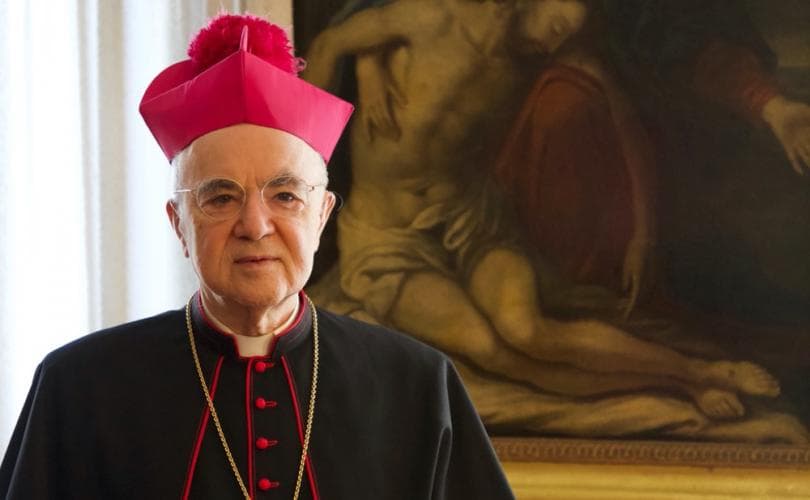ROME – A recent Vatican move to lodge schism charges against Archbishop Carlo Maria Viganò, a notorious papal critic who’s accused Pope Francis both of covering up sexual abuse and also various doctrinal errors, has drawn potentially surprising support from a couple of high-profile conservative commentators.
Luigi Bisignani, an influential lobbyist and power-broker who has strong ties with former conservative Italian Prime Minister Silvio Berlusconi, published a June 21 essay calling the decision to act against Viganò long overdue, saying it came after Pope Francis had tolerated “every possible injury and maneuver” from the former papal envoy to the United States.
Meanwhile, the conservative Italian newspaper Il Foglio, founded by another figure with close ties to Berlusconi and his political heirs, carried an unsigned editorial on June 21 titled “Well Done, Holy Father.”
“Mercy and human patience are all well and good, but in the end there’s a limit,” the editorial said. “The Church is too serious a thing to allow the diffusion, almost the metastasis, of trash inside herself.”
The twin expressions of backing for the Vatican’s June 11 action against Viganò may indicate a desire among mainstream Catholic conservatives to disassociate themselves from a figure whose positions are seen as having become progressively more extreme after he initially broke with Pope Francis in August 2018 over the case of Theodore McCarrick in the U.S.
Since that time, Viganò has gone on to become a champion of far-right and traditionalist Catholic causes, including skepticism about the coronavirus and rejection of much of the teaching of the Second Vatican Council (1962-65).
Reports suggest that Viganò has been reconsecrated as a bishop by a prelate linked to the breakaway traditionalist Society of St. Pius X, founded by the late French Archbishop Marcel Lefebvre in the wake of Vatican II, and in social media posts regarding the Vatican decree, Viganò identified himself with Lefebvre.
“His defense is mine; his words are mine; and his arguments are mine,” Viganò wrote.
It’s a comparison that Bisignani vigorously challenged in his June 21 essay.
“The small difference is that Marcel Lefebvre, before rejecting the documents of the Second Vatican Council (which he had voted for) had been the greatest missionary of the 20th century of the Catholic Church in Africa,” Bisignani wrote.
“Meanwhile, Monsignor Viganò has gone down in the news as a ferocious family bureaucrat, first in Rome and then in Washington, where for a long time he colluded with McCarrick before cutting him loose and dumping all the blame on him, after he was unable to defend himself due to senile dementia,” Bisignani said.
In the end, Bisignani argued, Viganò has brought the schism charge on himself. Moreover, he said, it was necessary for the Vatican to act now in light of rumors that someone linked to Viganò may have been planning an unspecified “theatrical gesture” during a consistory for the canonization of saints Pope Francis has convoked in Rome on July 1.
The Il Foglio editorial suggested that Viganò’s reputation has been in steady decline since his original 2018 accusations.
“The archbishop went into eclipse,” it said. “He appeared only in videos with increasingly apocalyptic messages, and with homilies spread by sites and blogs with a similar vision of the world and of the Church.”
“He became a champion of the large ‘No Vax’ and ‘No Pass’ crowd, and he took up the defense of Putin saying that ‘George Soros and the globalist cabal wanted this war’,” the editorial said.
Both Bisignani’s piece and the Foglio editorial suggested Pope Francis showed remarkable restraint in not acting against Viganò earlier.
“For once, Bergoglio wasn’t impulsive,” Bisignani wrote. “If anything, he procrastinated.”











